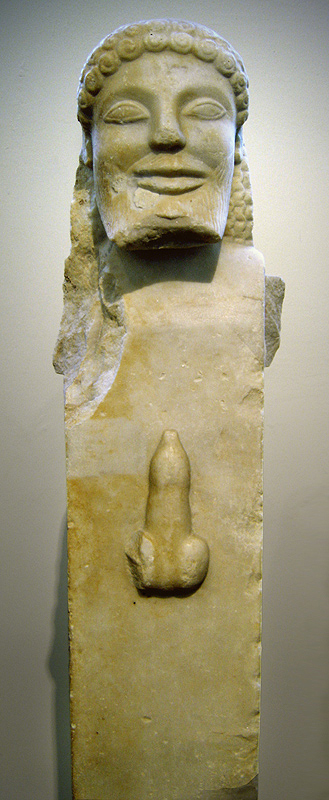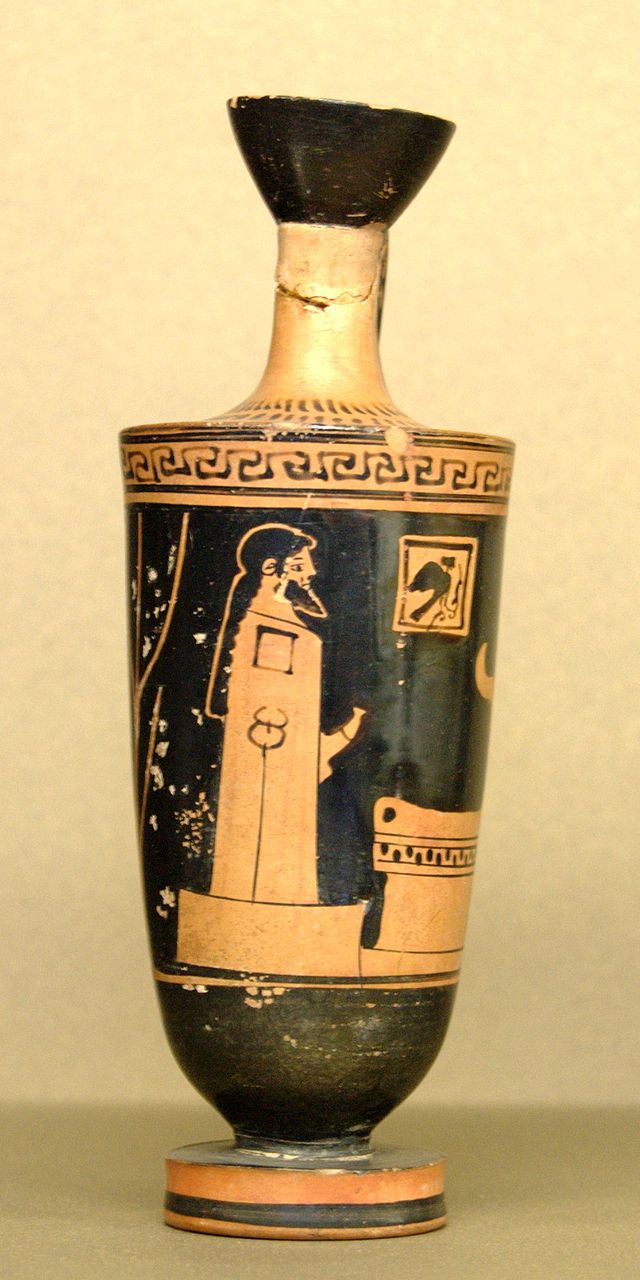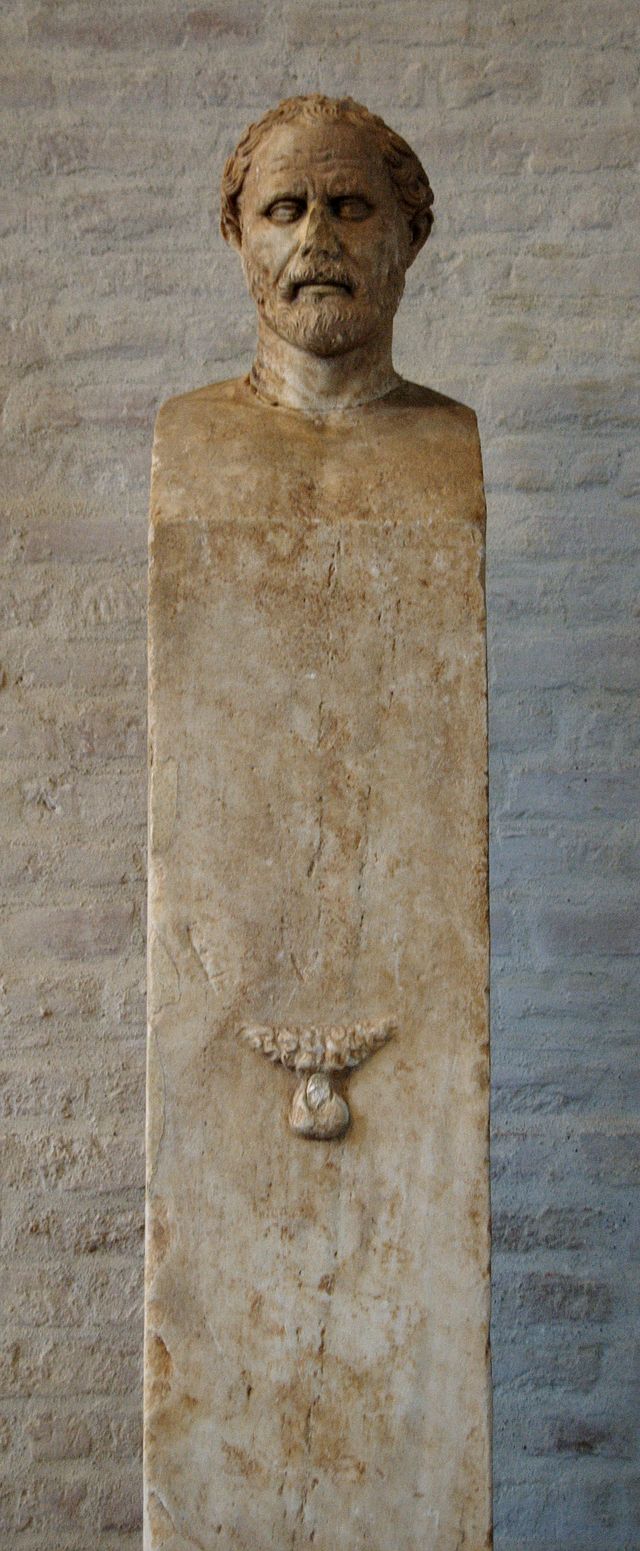 |
Craig White's Literature Courses
Herm, Herma plural hermae |
 Greek Herm of god Hermes |
Oxford English Dictionary. Herma. A statue composed of a head, usually that of the god Hermes, placed on the top of a quadrangular pillar, of the proportions of the human body: such statues were exceedingly numerous in ancient Athens, where they were used as boundary-marks, mile-stones, sign-posts, pillars, pilasters, etc.
Oxford Companion to Classical Literature, ed. Paul Harvey, 1940. Hermae. Quadrangular pillars surmounted by a bust of Hermes with a phallus below this, set up at Athens (and other places) at street-corners, on high roads, and in front of houses, some of them inscribed with moral precepts. The sacrilegious mutilation fo the Hermae at Athens during a night shortly before the departure of the Sicilian Expedition threw the city into extreme commotion.
Hermes, for whom hermae are named, was a Greek god associated with fertility, luck, roads, and travel. Cognate with the Roman god Mercury, Hermes was a god of transitions and boundaries, quick and cunning, moving freely between the worlds of the mortal and divine, as emissary and messenger of the gods. (Wikipedia)
 Herm on red-figure Lekythos or oil-pot |
 3rd-century BCE Herm of Demosthenes, 4th-century Athenian statesman and orator |
![]()
—x